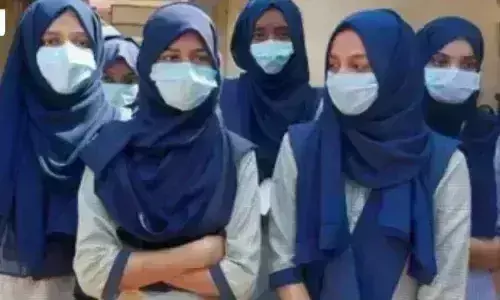Just In
Karnataka hijab row: Everything you need to know about it


The hijab is not an essential religious practise, according to the Karnataka High Court, which today upheld a ban on hijabs in schools, despite weeks of violent protests in various parts of the state.
The hijab is not an essential religious practise, according to the Karnataka High Court, which today upheld a ban on hijabs in schools, despite weeks of violent protests in various parts of the state. The Karnataka government issued an order on February 5th banning clothing from schools and universities that "disturb equality, integrity, and public order."
"We are of the considered opinion that wearing of hijab by Muslim women does not form a part of essential religious practice in Islamic faith," three judges stated, refusing to overturn the state government's prohibition and dismissing five Muslim students' applications.
What is the issue?
Six students were prohibited from visiting a government school in Udupi district in December because they were wearing hijabs. Students from a Mangaluru district institution made similar statements as the situation grew. As schools enforced restrictions, more students across Karnataka began to speak up. Muslim students claimed that their fundamental rights to education and religion were being violated.
Counter-protests were organised by fringe Hindu groups, and a number of students and others quickly found themselves in a tense standoff with those protesting the hijab ban. Saffron shawls and scarves were worn by Hindu groups, emphasising the communal hostility surrounding the tragedy. With reports of violence and stone-pelting, the protests quickly extended to other districts and even outside of Karnataka.
Schools and colleges in affected districts of Karnataka, including Udupi, Bengaluru, Shivamogga, and Dakshina Kannada, were briefly ordered to close.
State education minister BC Nagesh said, "I'm happy that the government's stand has been upheld by the Karnataka High Court. I request the girls who went to the court should follow the judgment, education is more important than any other things."
A school uniform, according to the High Court, is a legitimate constraint that students cannot complain to. According to the ruling, schools had valid grounds to implement dress standards prohibiting the hijab in the purpose of preventing religious and other divisions. The students may challenge today's order before the Supreme Court.

© 2024 Hyderabad Media House Limited/The Hans India. All rights reserved. Powered by hocalwire.com






